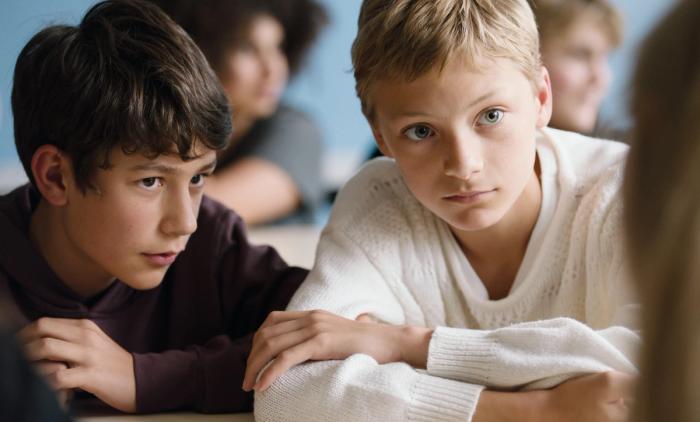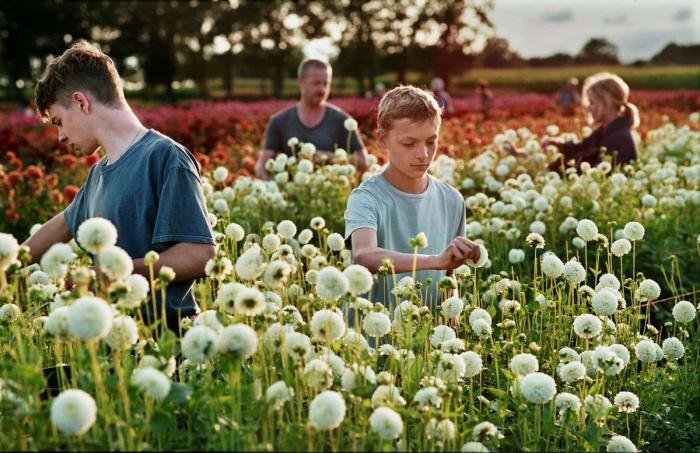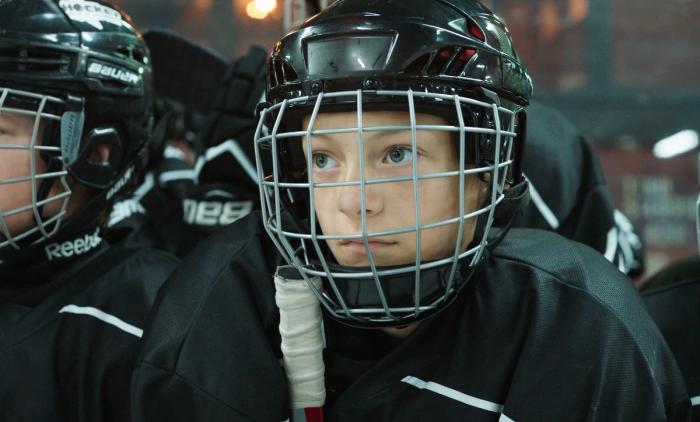
Children and teenagers are capable of an unfortunate cruelty to each other that is in most cases learned from watching other people, be it adults in their lives or characters on television or in film. The need to ostracize those who feel different can have immeasurably detrimental effects and lead to tragic consequences. Even in an evolving society where different identities are becoming more accepted, one brutal comment can be enough to make someone else miserable. Close examines a seemingly unbreakable bond between children and its unfortunate unraveling.
Léo (Eden Dambrine) and Rémi (Gustav De Waele) are best friends. They spend all their time together, sleeping over at each other’s houses and enjoying warm relationships with both their families. At school, they do sometimes interact with others, yet they’re still able to frequently exchange cheerful glances and smiles. When a classmate asks Léo if he and Rémi are a couple, Léo reacts defensively and gradually starts pushing Rémi away, a jarring shift in behavior that causes Rémi a great deal of pain.

What makes this premise so intriguing – and devastating – is that Léo feels a need to turn away from the closeness he feels with his best friend even when the two of them being a couple wouldn’t be something controversial or even out of the ordinary. It might be the giggling that accompanies the question that pushes him to respond so sharply, but it’s an honest query, one that doesn’t impart judgment, and which likely involves that giggle because the two of them are an endearing and adorable pair. And Léo isn’t even trying to hide anything, since there is no romantic component to their relationship, merely an inseparability that quickly turns sour when Léo starts to distance himself from Rémi.
Close comes with its own added set of expectations because of director Lukas Dhont’s previous film, his debut feature Girl. The portrait of a transgender dancer from a cisgender male director starring a cisgender male actor was met with alarm due to the problematic portrayal of its lead character and her mental health. In his follow-up film, Dhont demonstrates a greater understanding of and sympathy for his protagonists, though viewers should be cautioned that the film does include upsetting content. Dhont is evidently comfortable working in spaces with the potential to be disturbing and pushing against established social norms in the service of compelling storytelling.

The greatest assets of Close are its two stars, both of whom make their film debuts with these roles. Dambrine presents Léo as an affable, gentle kid who has no trouble making friends and is capable of radiating kindness, which makes his shift to hostility all the more jarring and heartbreaking to watch. De Waele portrays Rémi as considerably shier and more deferential, adoring his best friend with more sufficient social skills. The hurt Rémi feels and has trouble processing when Léo starts to ignore him is truly palpable, a testament to the strong performances of these two young actors.
Close, which is Belgium’s official Oscar submission for Best International Feature, also features potent turns from adult actors including Émilie Dequenne and Léa Drucker. Like last year’s shortlisted Oscar submission, Playground, this is another film that deals with subjects that can be better comprehended and analyzed by adults but which involve and affect children. There are some who will feel the need to avoid such films altogether, but there is something absolutely worthwhile and important to be found in this type of exploration. Thanks to its talented breakthrough stars and a careful, attentive eye from Dhont, Close is able to cover sensitive material in a responsible and powerful way.
Grade: B+
Check out more of Abe Friedtanzer’s articles.
Close will be released by A24 on Friday, January 27th, 2023.

